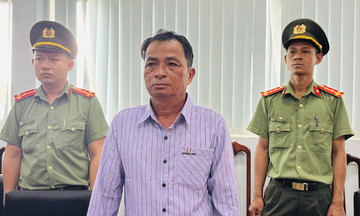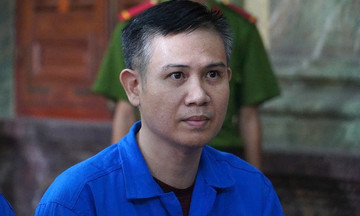Nguyen Thanh Nam, deputy director of the Domestic Market Management and Development Department at the Ministry of Industry and Trade, shared this information at a forum titled "Improving intellectual property policies - Driving force for business innovation" organized by the Vietnam Chamber of Commerce and Industry (VCCI) on Tuesday afternoon, 26/8.
According to Nam, intellectual property (IP) plays an increasingly important role in enhancing the competitiveness of businesses and the nation. As Vietnam integrates deeply into the digital economy, IP is not only a tool to protect innovation but also a foundation for it, helping Vietnamese businesses participate in global value chains. However, many businesses are not truly focused on IP, leading to persistent IP rights violations. Infringement cases are increasing in both scale and complexity.
Statistics from authorities show that in the first six months of this year, the country inspected and handled over 50,419 cases related to smuggling, counterfeit goods, and IP violations, with the value of infringing goods reaching trillions of Vietnamese dong (VND). In the trademark field alone, 1,430 infringement cases were handled, with fines exceeding 18 billion VND, an increase of nearly 30% compared to the same period last year.
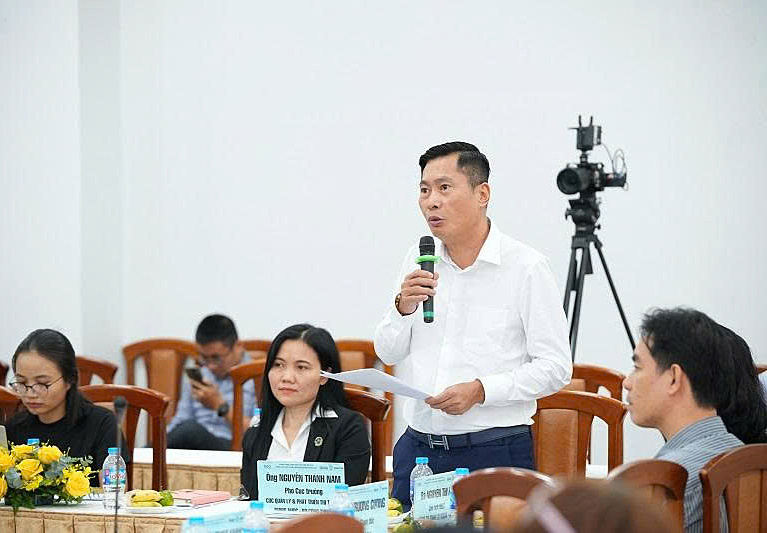 |
Nguyen Thanh Nam, deputy director of the Domestic Market Management and Development Department at the Ministry of Industry and Trade, speaks at the forum. Photo: VCCI |
Nguyen Thanh Nam, deputy director of the Domestic Market Management and Development Department at the Ministry of Industry and Trade, speaks at the forum. Photo: VCCI
Counterfeit and imitation goods not only harm consumers but also distort competition, seriously impacting legitimate businesses. IP infringements are becoming increasingly sophisticated, especially in e-commerce and social media, growing in scale and complexity. Lack of awareness and effective traceability tools contribute to this widespread problem, eroding consumer confidence and hindering the development of the digital economy.
In this context, Resolution 57/NQ-TW dated 22/12/2024 of the Politburo calls for improving the legal framework for intellectual property, digital assets, and data as the foundation for an innovative ecosystem. The resolution aims to strengthen IP protection and enforcement in the digital age, promoting digital transformation and opening a new development phase for Vietnam. This serves as a guideline for enhancing market management, protecting fair competition, and the rights of innovative businesses.
To limit IP infringement, Nam suggests strengthening inspections and imposing stricter penalties on e-commerce and social media platforms; applying the 2025 Law on Product and Goods Quality; establishing a national traceability database; using digital technology and AI for monitoring; and improving policies for digital assets and transaction verification mechanisms.
Simultaneously, it's necessary to promote inter-agency and international cooperation; support small and medium-sized enterprises in protecting their IP rights; and invest in IP protection technology research to build a transparent innovation ecosystem and digital economy.
"Improving IP policies is a key driver for Vietnamese businesses to innovate and compete globally. We are committed to working with VCCI and other parties to implement solutions, contributing to a healthier market," Nam said.
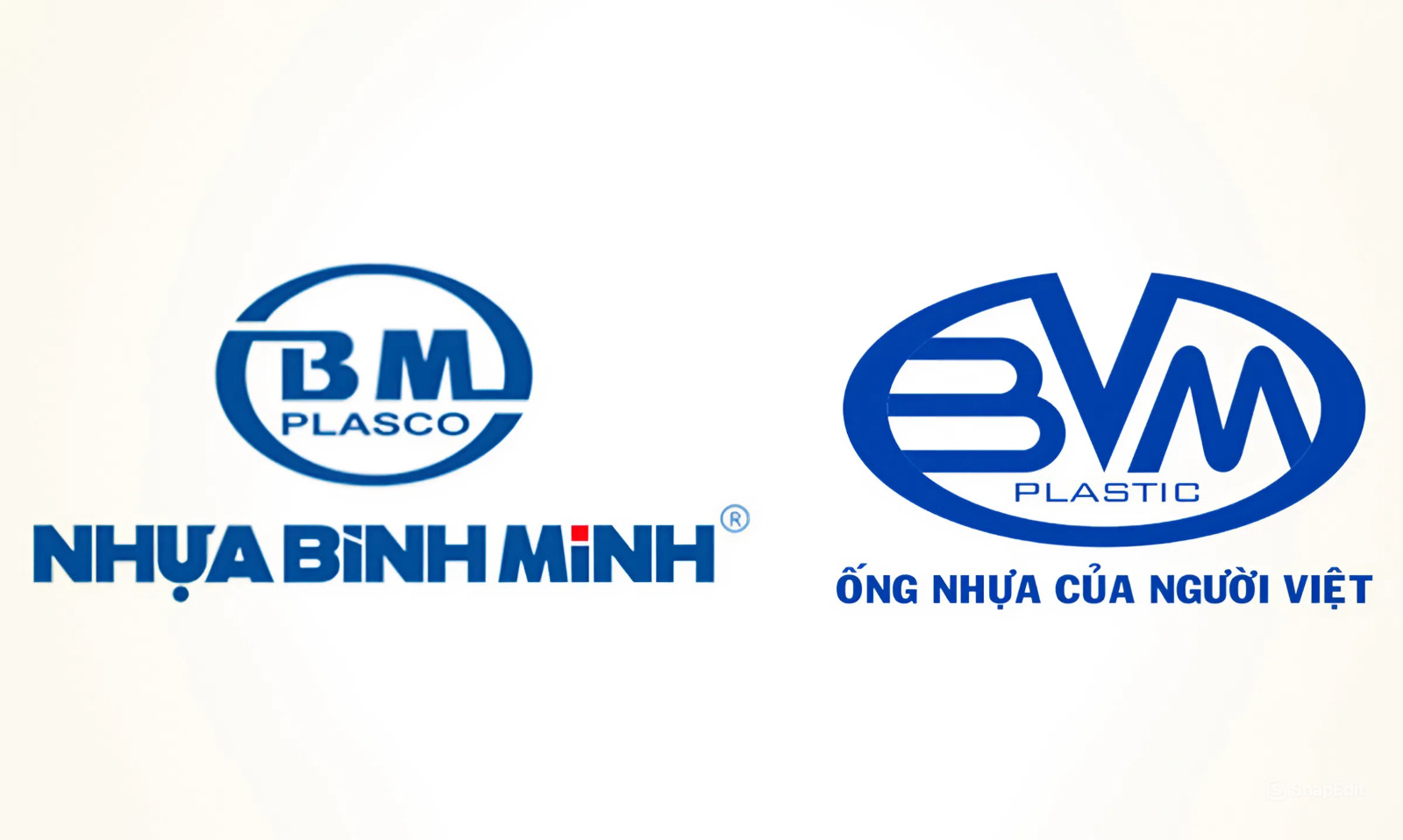 |
Logos of Binh Minh Plastics Joint Stock Company (left) and Binh Minh Viet Plastics Joint Stock Company. |
'Even pioneering brands can fall'
Vo Tan Thanh, vice president of VCCI, stated that according to PwC Vietnam's assessment, intangible assets accounted for an average of 53% of global business value in 2023, while in Vietnam, this figure only reached 26%.
According to Thanh, the legal framework for IP in Vietnam still has many "fatal flaws." The IP Law, enacted in 2005 and amended several times, has not kept pace with the development of non-traditional assets like digital data and high technology. In the context of transitioning to a new era, IP needs to become a "launchpad" for protecting and effectively exploiting intangible assets, fostering technological innovation, and creating breakthrough products.
Statistics from the Department of Intellectual Property show that, although Vietnam has over 700,000 protected trademarks, infringement remains widespread. In 2024, over 2,000 infringement cases were recorded, with the value of infringing goods reaching hundreds of billions of VND. In the first half of this year alone, authorities detected and handled over 3,270 cases, averaging nearly 20 cases per day, causing trillions of VND in damages.
Not only small businesses, but also large brands like Binh Minh Plastics and Trung Nguyen Coffee have had their packaging, trademarks, and trade names counterfeited. Thanh mentioned the case of Binh Minh Plastics, a nearly half-century-old brand, which had to litigate for years due to a similarly named business (differing by one word). "This is not just a dispute, but a warning that if protection mechanisms are slow, even pioneering brands can fall," he said.
Thanh cited the IP protection policy in the US, where infringement compensation can reach hundreds of millions of USD. Singapore, thanks to its transparent legal framework and strict penalties, has become a leading startup hub in Asia. The common point of these countries, according to him, is not only encouraging innovation but also protecting it to the fullest.
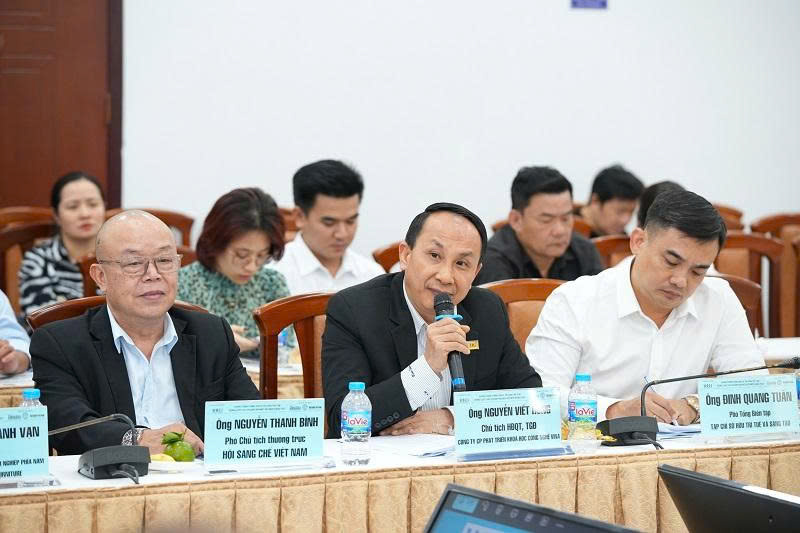 |
Delegates attending the forum make presentations. |
Need a 'soft shield' against counterfeiting
At the forum, many delegates raised the issue that in Resolution 68-NQ/TW on the development of the private economy, the Central Committee emphasized "innovation, intellectual property, digital transformation, science, and technology" as driving forces for development, accompanied by specific policies from tax incentives to support for IP registration. However, there are still many "bottlenecks" in IP policies: slow and monopolistic appraisal; light penalties; and a lack of close inter-agency coordination and rapid handling.
These experts offered several solutions: improving the legal framework to include punitive compensation mechanisms; effectively operating specialized IP courts; expanding independent appraisal and ending monopolies; applying digital technology to protect brands; and raising public awareness to make consumers a "soft shield" against counterfeiting.
Some businesses expressed their desire for the prompt completion of IP legislation to create momentum for development.
However, according to Nguyen Thanh Nam, before waiting for policy solutions, businesses must raise awareness in self-protection, prepare brand identification solutions, promptly identify signs of infringement, and issue immediate warnings upon detection.
Hai Duyen








